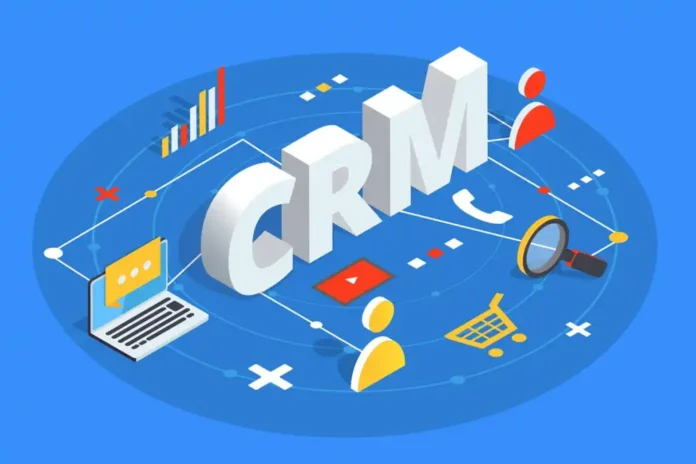Being in charge of a business has never been easy. Although it may seem like certain firms and companies, big or small, have it all figured out, it is never the reality of things. It may be the current situation but like everyone else they too had to spend months and years failing and picking themselves up again. In the modern world, it is said that we have things much easier and simpler than our predecessors before us. However, that does not mean that contemporary business owners have fewer things to do nor does it mean they can be easygoing and care little about the many aspects of being in charge. Like it always has been, running a business in the modern times is difficult and full of challenges.
However, things are better in one sense and that is the amount of help people have in various forms. Certain areas of establishing a business and then growing it are easier but only if you know how to make use of it all. There is still hard work involved and the right and wrong moves to make along the way. There are also some things that every business should absolutely make use of because otherwise it becomes nearly impossible to remain optimal and effective. One such modern advantage is CRM, which stands for customer relationship management, and it comes in the form of software.
Right from its name it can be easily concluded why such a solution is so advantageous for businesses. It is all about the customers and the relationships you build with them along the way. In the long run, it is these relationships that guarantee success through happy, returning customers and many first-hand recommendations. In this article we talk about CRM in depth and determine why it is so important for any modern business regardless of the industry. Read along to learn more about this and be sure to check out https://testfort.com/crm-erp-testing.
1. Better Customer Service

A modern customer knows full well what they need from a business they are engaging with. On average, people are much more informed and knowledgeable than before which means that they rarely need someone to do literally everything in terms of explaining and offering things. Because of this, they expect more from the customer service as well, especially when they have a problem of technical nature that should be solved in no time. With CRM, you can get your business over the bump of average customer service and into the new age of responsiveness, problem-solving, and always being there to answer the customers’ needs. You also get to gather crucial information like the demographics of the customers, purchase records, and many other data that will help your insight into your clients.
2. An Increase in Sales
As unreal as this may sound, CRM is actually capable of helping you achieve more sales. By streamlining the very sales process, it builds a sales pipeline and automates key tasks of the entire experience. The result? All of your sales data will be centralized in one place and this alone is enough to increase productivity and the number of products sold. A customer relationship management software can finally give you a step by step process of selling your products that your employees can use to do their jobs more easily. The customers will of course appreciate it too as it is a definite win-win situation for both sides. A product-led growth (PLG) CRM provides companies with a hybrid go-to-market motion that can even better align resources to the users who need it most, efficiently generating and growing revenue – Read more here on why you need one.
3. More Detailed Analytics

We mentioned the gathering of data and having more things to review already, but there is more to it, enough to justify a full, separate reason to introduce CRM into your business model. Having a lot of data about your customers is one thing, but knowing what it actually shows and how you can use it is a whole other story. The built-in analytics features that this software comes equipped with will finally help you to put all this data into context and understand its meaning. Have you always wanted to break down the stats and figure out the metrics in order to apply them and make use of them? Well, guess what. With CRM you finally can. Bounce rates, click-through rates, and demographics are among the most useful metrics you will have. Then, when the time comes for your next marketing campaign, it will be much more beneficial and successful because you will know exactly what to focus on the most.
4. Accurate Sales Forecasts
Predicting the future is not possible, everyone knows that much. However, using data from the past can help you predict it to a certain degree at least when it comes to your near future sales. Reviewing past performance and finding ways to build on it in order to get better should be among the top concerns for every board and every owner of a business. Have you spotted a key trend that has been building in recent months? Is there something that is not working as intended? Naturally, the former should be chased and explored further while the latter needs to stop so that there are no more losses. Future sales performance depends heavily on your ability to forecast it, and CRM can give you exactly this. Adjusting your goals and metrics will need to happen of course, but you will have enough of the right metrics to do it the right way.
5. Customer Segmentation Improvement

Last but not least, solely for this list of course, there is the question of segmenting different profiles of customers. Every customer is different and they should be approached as such, but some traits will be common for many of them. Some will care about your new products enough to willingly receive emails, others will only pop through the front door once in a while to browse what is new. It is up to you and your employees to figure out which you need to contact and how at any given time. Sorting contacts according to the customers’ wishes, gender, age, location, and preferences is very useful when trying to tend to different profiles. It is often enough to miss only once before you lose a customer, so be sure to respect them and distinguish among them. With CRM, this can be automated and allow you to have the right, custom-made interaction with every single customer.








